Our brains are incredibly powerful, but many of us aren’t quite sure how to take care of them properly.
This article is here to change that. You’ll discover easy-to-follow tips, practical advice, and scientific insights that make understanding and improving your brain health simple and enjoyable.
Think of this blog post as your friendly companion on the journey to a healthier, happier mind. Let’s unlock the secrets to longevity and mental wellness together. Get ready to optimize your brain and enjoy a brighter, more fulfilling future!
What is Brain Health?
Brain health is a vital part of our overall well-being, affecting our emotional, psychological, and social health. It influences how we think, feel, and act—and plays a central role in how we manage stress, build relationships, and make decisions. From childhood through adulthood, taking care of your brain is essential at every stage of life.
The connection between brain and physical health is strong. For instance, depression can increase the risk of chronic conditions like diabetes, heart disease, and stroke. Likewise, living with a long-term illness can negatively impact your mental well-being, making you more vulnerable to brain-related issues.
Nutrition for Brain Health
Keeping your brain sharp and healthy is a common goal, especially as we grow older. Fortunately, nature provides a variety of tasty foods that support brain function and memory. Here are some top brain-boosting foods to add to your diet:
1. Fatty Fish
Fish like salmon, trout, and sardines are loaded with omega-3 fatty acids—essential fats your body can’t produce on its own. Omega-3s are crucial for building brain and nerve cells and have been linked to slower cognitive decline and a lower risk of Alzheimer’s. Including fatty fish in your meals can keep your brain sharp and healthy.
2. Coffee
Coffee isn’t just a morning pick-me-up—it can also benefit your brain. Its caffeine boosts alertness and mood, and it may even enhance memory. Plus, coffee’s antioxidants help protect your brain from damage. So enjoy your daily brew without guilt!
3. Blueberries
Blueberries are tiny but powerful. Packed with antioxidants and anti-inflammatory compounds called anthocyanins, they help fight oxidative stress and inflammation—both of which contribute to brain aging. Add them to smoothies, yogurt, or enjoy them as a snack.
4. Turmeric
The golden spice turmeric contains curcumin, a compound known to cross the blood-brain barrier. It’s a potent antioxidant and anti-inflammatory that may improve memory, reduce depression, and even help grow new brain cells. Add it to dishes or enjoy turmeric tea.
5. Broccoli
Rich in antioxidants and vitamin K, broccoli supports overall brain health. Just one cup of cooked broccoli gives you more than 100% of your daily vitamin K needs, which is essential for forming brain cell membranes. Steam it or snack on it raw—it’s a brain-friendly veggie either way.
6. Pumpkin Seeds
Don’t underestimate these little seeds. Pumpkin seeds are loaded with antioxidants and vital minerals like magnesium, zinc, iron, and copper. These nutrients support nerve signaling and brain function. Sprinkle them on your salad or eat them on their own.
7. Dark Chocolate
Great news for chocolate lovers—dark chocolate is packed with flavonoids, caffeine, and antioxidants that support brain health. Flavonoids may boost memory and slow down age-related mental decline. Choose chocolate with at least 70% cocoa for the best benefits.
8. Nuts
Nuts, especially walnuts, are brain-boosting powerhouses. They contain healthy fats, antioxidants, and vitamin E, which protect brain cells and support cognitive function. A small handful each day is a smart, satisfying snack.
9. Oranges
Just one medium orange provides nearly all the vitamin C you need in a day. Vitamin C helps prevent mental decline by fighting free radicals that damage brain cells. Eat them on their own or add slices to your meals.
10. Eggs
Eggs are rich in nutrients vital for brain health, like vitamins B6, B12, folate, and choline. Choline helps produce acetylcholine, a neurotransmitter involved in mood and memory regulation. Adding eggs to your diet is a simple way to support brain function.
11. Green Tea
Green tea offers calm focus thanks to its unique combo of caffeine and L-theanine. While caffeine sharpens alertness and memory, L-theanine promotes relaxation and reduces anxiety by boosting the calming neurotransmitter GABA. Sip your way to a balanced brain.
Best Games for Brain Health
Keeping your mind sharp is more important than ever—especially in today’s world where we may not be getting the mental stimulation we used to. Gone are the daily chats at the office, happy hour laughs, and weekend get-togethers. Those moments weren’t just fun—they helped keep our minds active.
Games that challenge memory, logic, and creativity can be a great substitute. Whether it’s crossword puzzles, Sudoku, chess, memory-matching apps, or strategy-based video games, engaging your brain with stimulating activities helps strengthen cognitive skills and improve mental flexibility.
Why it matters to exercise your brain

According to Rebecca Marcus, LCSW, a licensed psychotherapist in New York who specializes in mindfulness, brain games are important for several reasons:
-
They enhance focus, concentration, and memory.
-
They help us stay present and engaged in our daily routines.
-
While they may not prevent age-related cognitive decline or dementia, growing research suggests they can slow down or delay these conditions.
If you enjoy a good mental workout, strategy games like chess, Go, and checkers are excellent. These games require planning, anticipation, and strategic thinking—helping to boost concentration, problem-solving, and long-term thinking.
For those who love a nostalgic challenge, memory games like matching pairs or Simon can bring back childhood memories while strengthening short-term memory and attention.
If you’re tech-savvy, consider brain-training apps such as Lumosity, Peak, and Elevate. These apps are designed to improve various cognitive skills like memory, focus, and mental agility—right from your smartphone or tablet.
Video games aren’t just for kids. Games like Tetris, Portal 2, and Brain Age (Nintendo DS) challenge your spatial awareness, logic, and problem-solving abilities. Think of navigating a complex level in Portal 2—each puzzle pushes your brain to think creatively and adapt quickly.
Card games like bridge and poker are also powerful tools for brain health. They enhance memory, strategic planning, and probability thinking, all while encouraging social interaction—a key element in cognitive longevity.
Board games such as Scrabble, Risk, and Settlers of Catan are perfect for game nights with friends and family. Scrabble improves vocabulary and word recall, while Risk and Settlers of Catan hone your long-term strategy and resource management skills.
Don’t overlook quick and fun word games like Boggle and Word Search. These simple games improve quick thinking, vocabulary, and pattern recognition—great for a short mental refresh during your day.
Best Nuts for Brain Health
Walnuts and almonds aren’t just tasty snacks—they’re powerful brain boosters.
-
Walnuts are packed with antioxidants, omega-3 fatty acids, polyphenols, and vitamin E. These nutrients protect brain cells from inflammation and oxidative stress, helping to preserve memory and cognitive function. Studies show walnuts can enhance brain performance, slow aging, and reduce the risk of neurodegenerative diseases.
-
Almonds are another excellent choice. Rich in magnesium, vitamin E, and flavonoids, they support memory and overall brain function. Research indicates that even a small daily intake can improve learning and memory, especially in middle-aged and older adults.
Incorporating these nutrient-dense nuts into your diet is a simple and delicious way to boost brain health.
Brain Aneurysm Symptoms
A brain aneurysm, or cerebral aneurysm, is like a fragile, balloon-like bulge in a blood vessel within the brain. Think of it as a small berry on a delicate stem—where pressure from blood flow can stretch the weakened vessel wall.
Most people with brain aneurysms live without symptoms, as many remain small and unruptured. These are often found incidentally during scans for unrelated health issues and usually pose no immediate danger.
However, if an aneurysm ruptures, it causes bleeding in the brain—a serious and potentially life-threatening condition known as a subarachnoid hemorrhage. This is a medical emergency that requires immediate attention.
Signs of a ruptured aneurysm include:
-
A sudden, severe headache often described as “the worst headache of my life”
-
Nausea or vomiting
-
Sensitivity to light
-
Loss of consciousness
-
Seizures
An unruptured aneurysm might still cause symptoms if it puts pressure on nearby nerves or tissue, including:
-
Pain around or behind the eye
-
Dilated pupils
-
Vision problems
-
Numbness or weakness on one side of the face
Routine check-ups and imaging tests can help detect aneurysms early, potentially saving lives and preventing complications.
Omega-3 Fatty Acids
Omega-3 fatty acids are essential fats that play a vital role in overall health—and they’re especially important for your brain.
Since your body can’t produce them naturally, you need to get omega-3s from food or supplements. These healthy fats are involved in every cell and contribute to:
-
Brain cell structure and communication
-
Reduced inflammation
-
Better heart and vascular health
-
Improved focus and mood
Foods rich in omega-3s include fatty fish (like salmon, sardines, and trout), flaxseeds, chia seeds, and walnuts. Adding them to your daily meals can help you feel sharper, more energetic, and mentally balanced.
Vascular Dementia
Vascular dementia occurs when blood flow to the brain is disrupted, often due to strokes or blocked vessels. Imagine a city where traffic jams halt essential services—similarly, when brain cells don’t receive enough oxygen and nutrients, they begin to break down.
This form of dementia can lead to:
-
Memory problems
-
Difficulty focusing or solving problems
-
Slowed thinking
-
Trouble with decision-making or daily tasks
Vascular dementia may occur on its own or alongside other forms of dementia, making symptoms more complex. Managing health conditions like high blood pressure, cholesterol, and diabetes is key to prevention.
Phosphatidylserine
Phosphatidylserine is a phospholipid—a fat-like substance found in every cell, especially in the brain. Think of it as a guardian for your neurons, helping keep your memory and mental clarity strong.
It plays a vital role in:
-
Brain cell communication
-
Memory formation
-
Attention and processing speed
Many people take phosphatidylserine supplements to support cognitive function, especially during aging. While not FDA-approved for treating medical conditions, it is generally considered safe and may offer benefits for those seeking mental sharpness and clarity.
Brainspotting
Brainspotting (BSP) is a powerful therapy that helps uncover and release unprocessed trauma by using specific eye positions—each linked to a “brainspot,” a location in the brain where emotional experiences are stored.
Unlike traditional talk therapy, Brainspotting allows clients to bypass conscious thought and access deeper emotional healing. With the guidance of a trained therapist, clients focus on the brainspot, allowing the brain to naturally process the trauma.
This method can lead to:
-
Emotional release
-
Greater self-awareness
-
Healing from PTSD, anxiety, or past trauma
Brainspotting is especially effective for people who have struggled with traditional therapy methods or are seeking deeper healing.
A Holistic Path to Lifelong Brain Health
Maintaining brain health for the long haul means taking care of your whole self—body, mind, and spirit. At Kairos Health and Wellness, we support a multi-dimensional approach:
-
Exercise: Aerobic and resistance training protect against cognitive decline.
-
Nutrition: A diet rich in antioxidants, omega-3s, and vitamins fuels your brain.
-
Mental stimulation: Reading, puzzles, games, and learning new skills keep your mind sharp.
-
Social interaction: Staying connected with others helps preserve cognitive abilities.
-
Medical support: Managing chronic illnesses like hypertension and diabetes lowers your risk.
-
Mental health care: Treating depression and anxiety is essential for brain function.
We tailor our services to your unique needs—offering regular check-ups, personalized lifestyle recommendations, and access to specialists, support groups, and brain health resources. With the right tools, you can stay sharp, resilient, and full of life for years to come.


